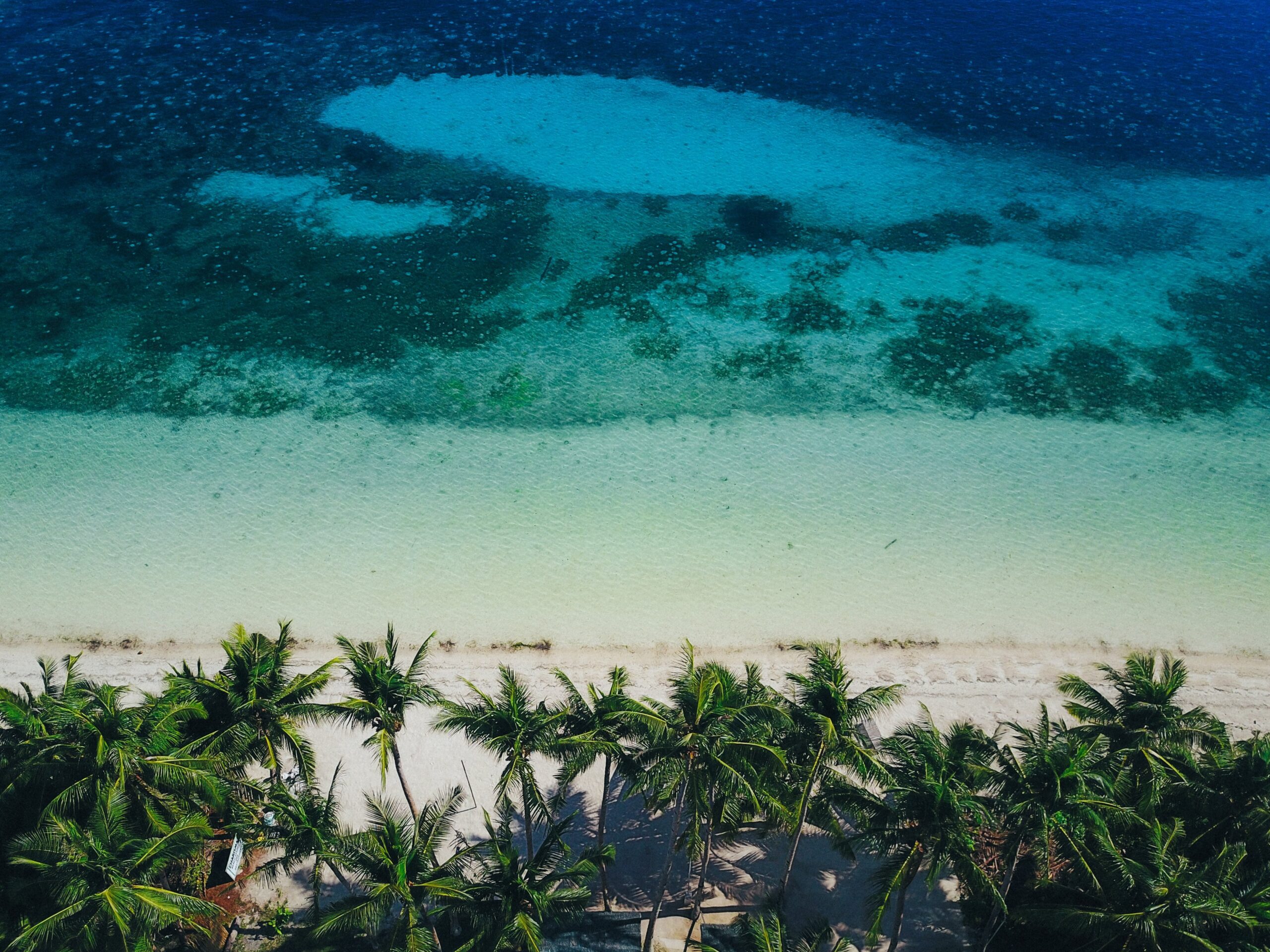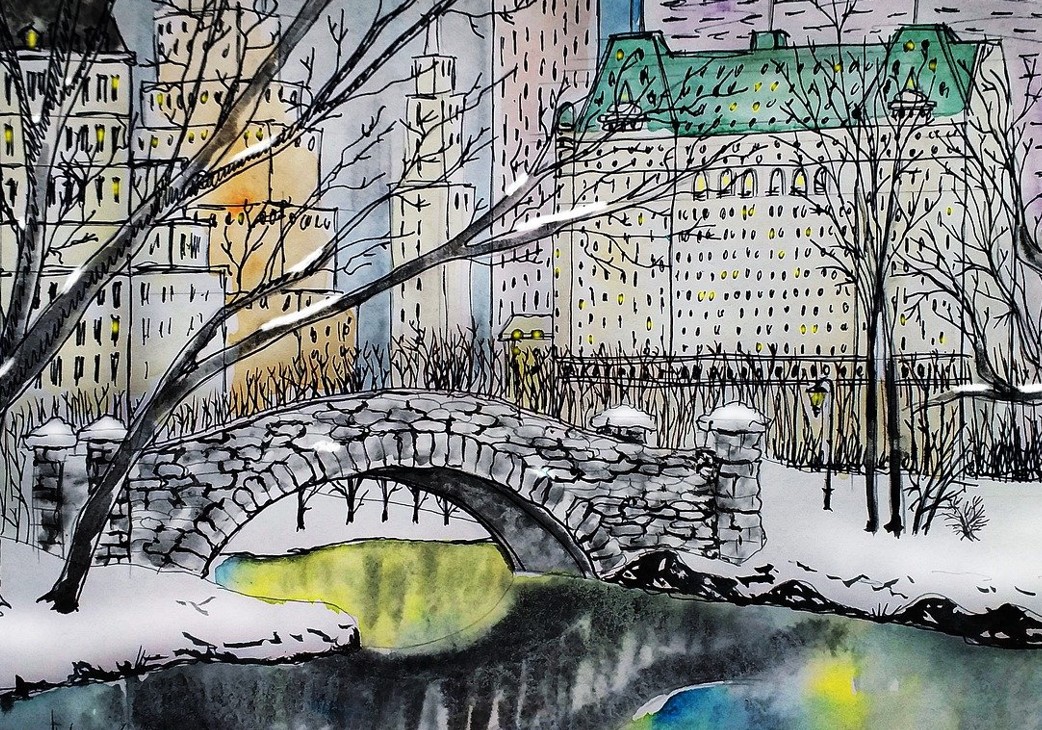
Last Chance Travel: Visiting the World’s Most Endangered Sites, Before They’re Gone


“Last chance travel,” has been trending since 2016 when the Great Barrier Reef experienced its first profound bleaching, but it wasn’t until this year that Forbes named it the spiking phenomenon of the year.
“From millennials visiting pristine countries like New Zealand to spending time in the Arctic, visiting endangered destinations will continue to thrive in 2018,” the magazine declared.
It’s the see-it-before-it’s-gone approach to travel. Some call it the climate change effect, while others are quick to point out it’s as culturally relevant as it is environmental. As globalization homogenizes culture, intrepid travelers want to experience a place before the next McDonald’s arrives.
Which spots top the list? We rounded up some of the most in-demand and endangered destinations across the globe.
Great Barrier Reef
Off the eastern coast of Australia, the 1,400-mile long Great Barrier Reef is the longest and largest coral reef in the world. But it has become a lot less vivid in the last two years. Since 2016, half of the coral in the the Great Barrier Reef has died, the Atlantic reported.
The cause of the reef’s devastation is clear: rising global temperatures have cranked up the temperatures on our oceans, making them inhospitable to fragile corals.
In 2016, a survey of visitors to the Great Barrier Reef found that nearly 70 percent said their desire “to see the reef before it’s gone” was the primary reason for their journey.
Glacier National Park
Glacier National Park is one of America’s largest, oldest, and most-visited national parks, and yet it may soon suffer from a branding issue. The number of glaciers in the park has dwindled from 150 in 1910 to 26, reports the New York Times. And according to the U.S. Department of the Interior, rising temperatures mean the park’s largest glaciers could be gone by 2030, while all are in danger of vanishing within the next few decades.
The Maldives
The Maldives, the Indian Ocean honeymoon paradise famous for white beaches and pristine waters, have seen a 68 percent spike in tourism due to the last-chance trend. While the United Nations predicted the low-lying islands could be underwater by 2100, some think the increased tourism could be what delays disaster. “Tourism and resorts may be the saviour of the Maldives,” Shiham Adam, director of the government’s Marine Research Centre, told the Guardian. “The Maldives needs money to survive. Resorts are very positive for the environment. They offer better protection than community islands because they must protect at least 700m all around them. They become mini marine reserves,” he said.
Venice
“Venice is not sinking,” writes James Taylor-Foster on ArchDaily of the Italian city erected on more than 100 islands connected by a network of bridges and canals. “It’s flooding.” Venice is prone to flooding—in 1966 the city was under six feet of water—but Venice has indeed sunk five inches over the last century, reports PBS NewsHour. Couple that with a rising sea level brought on by climate change, the World Unesco Heritage site is it trouble. “Scientists are hard at work trying find ways to stop Venice from going down,” writes Brad Cohen at USA Today, “but if they don’t figure it out soon, San Marco Square and Saint Mark’s Basilica might become a modern-day Atlantis.
Myanmar & Mongolia
Mongolia is home to one of the world’s last surviving nomadic cultures, and Myanmar is one of the largest, most diverse, and least known countries in Southeast Asia, after only recently reopening to tourists. But even in these traditional cultures, signs of modernity are creeping in. Companies like Overseas Adventure Travel arrange “Day in the Life” excursions that include making yogurt tea in a yurt and collecting dung for fuel and weaving. But travelers who seek out these experiences want to do more than merely see a way of life, they want to connect with it by meeting and meaningfully interacting with local people. In Mongolia, it is possible to travel to the steppes and stay with local families in a ger, their traditional tent dwelling.
Dead Sea
Bordering Israel, Jordan, and the West Bank, the Dead Sea—in fact, a lake—has long held spiritual significance to Christianity, Islam, and Judaism. The water itself seems transcendent. With a salt content nearly 10 times greater than the sea water, swimmers are held aloft on the water’s surface. But the Dead Sea’s shoreline is receding at a rate of about 3 feet per year. As the water recedes more than 1,000 sinkholes have appeared in the past 15 years. It’s not all doom and gloom, though. An Israeli government study thinks the rate of evaporation will slow and the Dead Sea will reach equilibrium again in a couple of decades—but not before losing another third of its present volume.
White Cliffs of Dover
The stunning White Cliffs of Dover along the southern coast of Britain are in peril. The cliffs, which get their arresting color from a chalk made from the shells of a rare species of algae, have been eroding 10 times faster in the last 150 years than they did over the previous 7,000 years, researchers say. The reason? A thinning of the beachfront that separates the 90-million-year-old mineral bluffs from the sea. Powerful storms and human mismanagement of the shoreline are now coupled with climate change, which is bringing elevated sea levels and stronger waves, all of which will increase erosion.
But if you’re looking to prioritize, this destination can move to the backburner and you don’t need to clamor to the cliffs just yet. “We’ve probably got tens of thousands of years left,” U.K. National Trust environmentalist Steven Judd told the The Washington Post in 2001.
Rainforests
The vast, millenias-old Amazon Rainforest in Brazil has been called “the earth’s lungs.” But our breathing capacity being severely hampered by destruction of the ecosystem for mining, industrial agriculture and illegal logging. Over the past four decades, 40 percent of the Amazon Rainforest has been lost.
And it’s not just in Brazil. All across the tropical regions of the globe, about 45 million acres of rainforest are lost each year, razed for palm oil trees and rubber plantations, cattle, and soybean farming. At current rates rainforests are expected to vanish entirely within 100 years, reports the Guardian.
The Last Chance Paradox
Researchers point out “last chance travel” presents a disturbing paradox. Those so eager to rush to see a disappearing place are, in fact, contributing to its destruction.
“Tourists are travelling greater distances to view the destination that is in danger, contributing higher levels of emissions and thus exacerbating the impacts of climate change,” write Annah Piggott-McKellar and Karen McNamara from the University of Queensland (Australia) the Journal of Sustainable Tourism.
But it becomes a vicious circle when the peril is indeed part of the appeal, writes Greg Dickinson at The Telegraph, “a kind of apocalypse…deathbed wanderlust…the irony being that the bucketloads of carbon it takes to travel to these sights is perpetuating the very climate change that is causing their demise.”
For the thoughtful traveler, questions abound about the ethics of travel that may be in danger of exploiting—and ultimately eradicating—unique cultures. For the nomadic tribes of Mongolian reindeer herders, is this sustainable tourism or a sideshow alley, asks Paula McInerney at the Contented Traveler. “Will we lose this valuable tribe with inherent knowledge of the environment and the ways of the reindeers, of a self contained and functioning community if we don’t assist with sustainable tourism? Is this responsible tourism?” Others question the ethics of visiting countries like Myanmar, where violence has forced 600,000 Rohingya refugees to flee the country in what the UN has called a “textbook example of ethnic cleansing.”
So on the other hand, if you really care, just stay home.


